A 5th wheel is a tough and heavy pull-behind that is built to last in the elements. But these campers do need some stability when they are parked. If you own a 5th wheel and are wondering if they can tip over when parked, we can help you find that answer. We researched the physics behind it from multiple professional sources so that you'll know for sure whether or not it can tip.
A 5th wheel can tip over when it is parked, but it will take very high winds to do so. During weather events with high winds, there are steps you can take to minimize the effect of the wind. It's important to:
- Be sure you are level
- Retract awnings
- Bring in the slide-outs
- Mind your position
- Stay attached to your tow vehicle
- Lower your stabilizing jacks
Now that we know that a 5th wheel is capable of tipping when parked, we'll take a look at the most common ways that this can happen. You might also be wondering how you can keep your 5th wheel from rocking, or how much wind it would take to flip one over. For the answers to these questions and more, read ahead in this post to see what our research has uncovered.
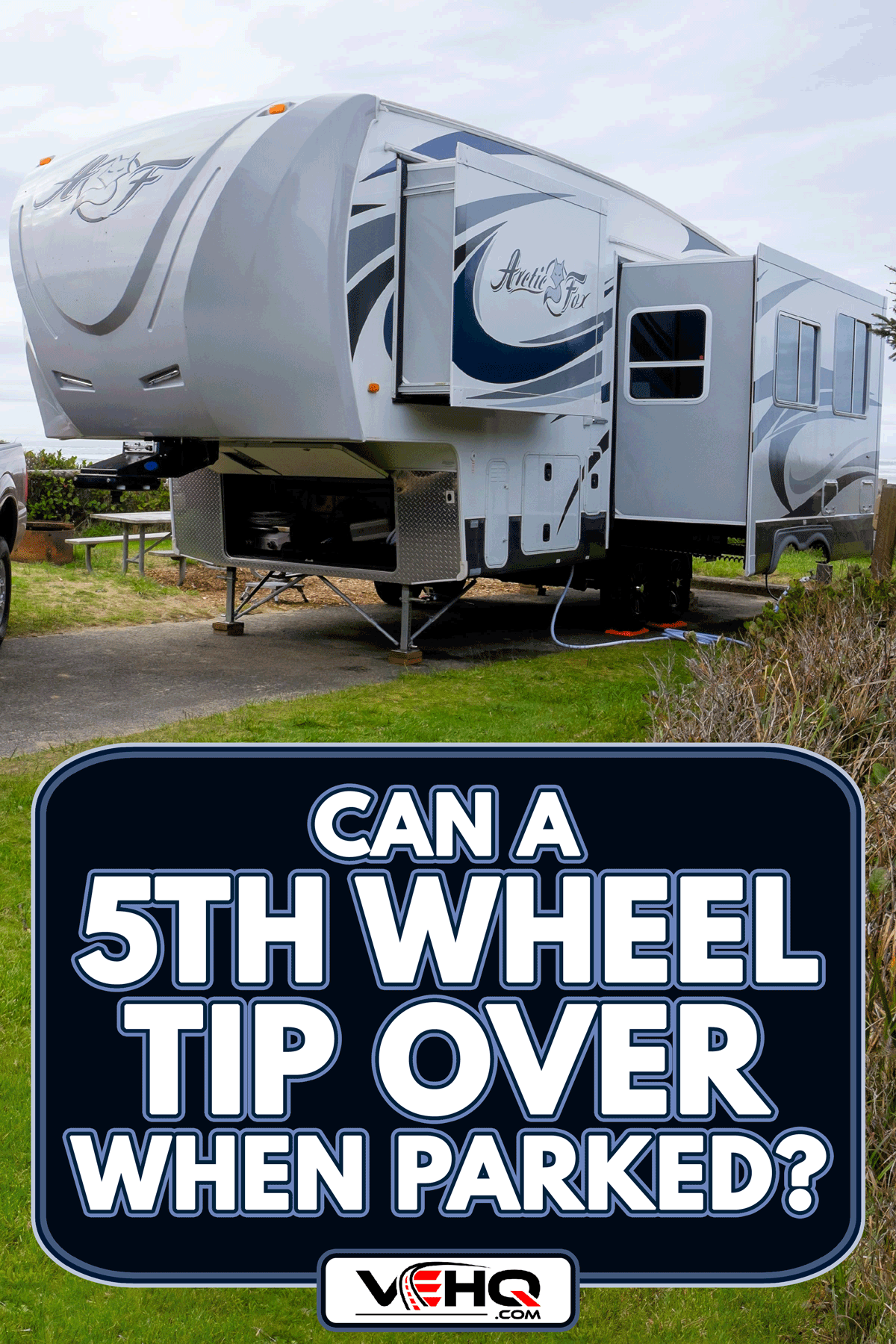
Ways you can prepare your 5th wheel for high winds
When traveling with a 5th wheel, you will eventually encounter weather that is less than favorable. But don't let the idea of a storm or two stop you from enjoying your trip across the country.
While we don't recommend 5th wheel travel in hurricane-level winds or during tornadoes, these campers can be made to withstand a good old-fashioned rain and windstorm.
Take the following precautions if you are camping on your 5th wheel and it begins to get windy.
Be sure you are level
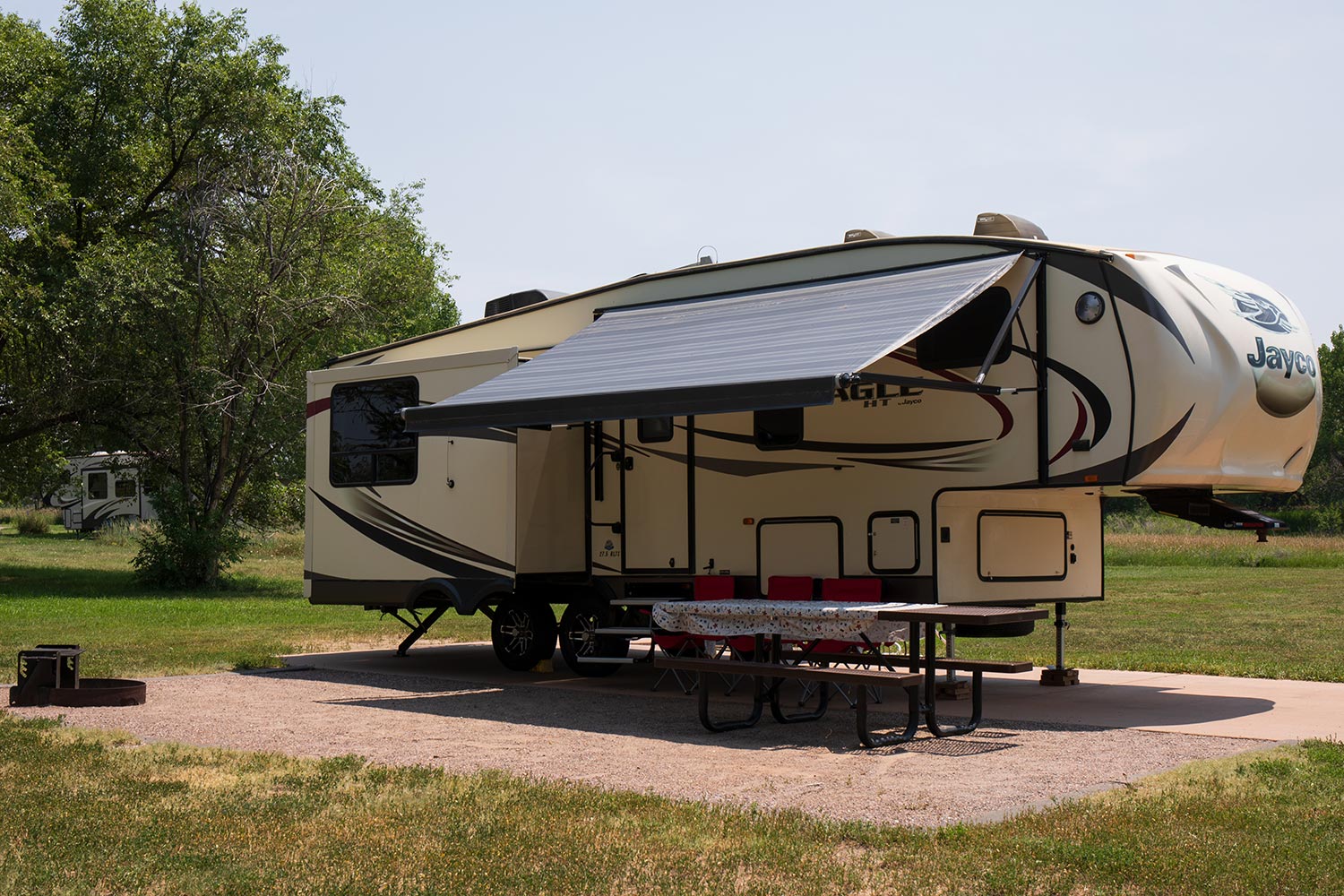
Parking on a level surface is really important. If you are at much of an angle, you make the 5th wheel that much easier to tip over. While this might sound like 5th wheel camping 101, you might be surprised at the number of times you'll see first-timers parking a bit askew.
Your 5th wheel and tow vehicle should be parked on a solid and level surface, wind or no wind. While campgrounds have leveled their spaces, some folks will dry camp away from authorized campgrounds. Though this can be a fun way to enjoy the wild, you'll want to make every effort to find a proper place to park.
Retract awnings
When the wind begins to whip up, retract those awnings. They are made on solid aluminum or steel frames, but they aren't meant to take much wind. If they are kept out, the wind will surely rip them away.
The wind will not only damage the fabric but will also pose damage to the awning frame itself. The wind can severely bend the frame, making it unusable.
Don't take any chances! Winds over 20 miles per hour mean that it's time for the awnings to be retracted and safely stowed.
Bring in the slide-outs
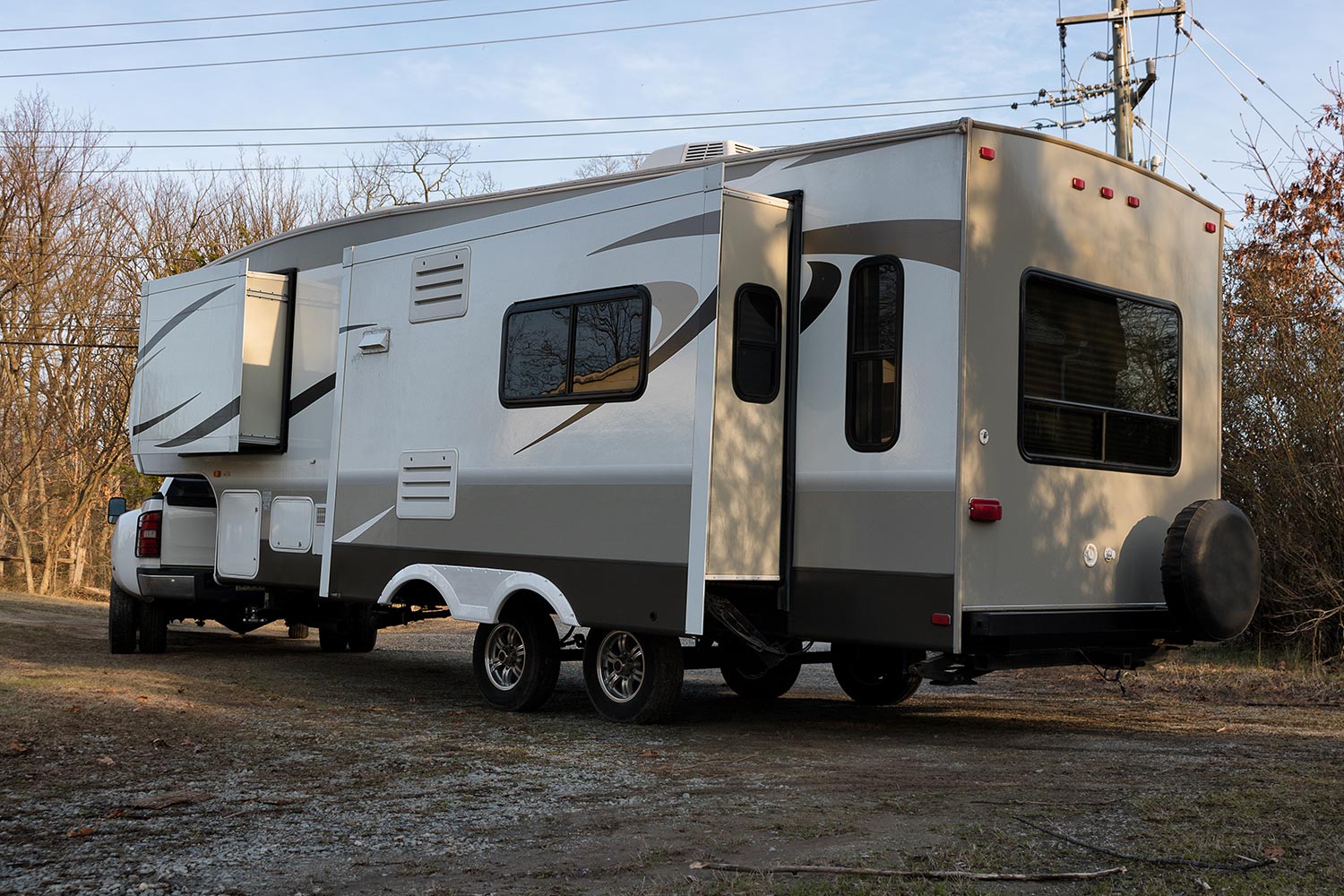
If your 5th wheel or camper has slide-outs, they should be brought in during high winds. Doing so will greatly reduce the surface area of the 5th wheel that is exposed to the wind.
These slide-outs are a lot more durable than the retractable awnings. But they shouldn't be out in high winds. You'll be greatly reducing the usable area inside your camper by doing so, but you will also be saving these parts from damage.
Mind your position
If possible, determine the wind's direction. Weather apps work great for this.
You want the head of the 5th wheel to face the wind. The narrow side of the wind will reduce the surface area that the wind hits. You want to avoid the wind hitting the camper's broadside. The bigger of an area the wind hits, the greater the likelihood of a tip-over.
Stay attached to your tow vehicle
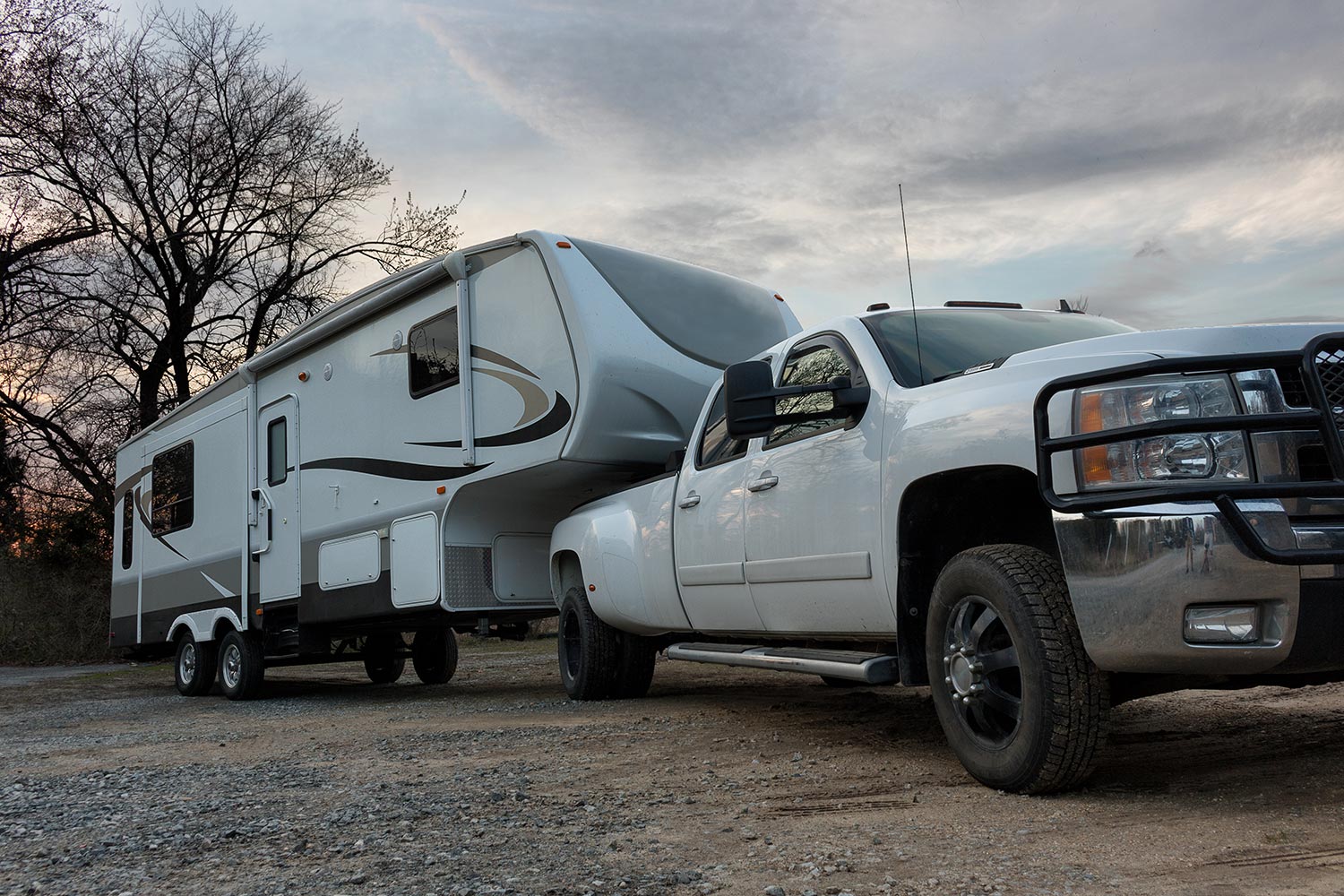
If the weather looks stormy or if the forecast calls for high winds, stay attached to your tow vehicle. Chances are, you are towing with a powerful truck or SUV. These are not only strong, but they are quite heavy.
Attaching your 5th wheel to a heavier object will give it more stability. While this doesn't make tipping impossible, it will certainly reduce the odds.
Lower your stabilizing jacks
You should lower the stabilizing jacks. Then, you need to secure them into place. With one at each corner of the 5th wheel, these can be positioned so that the 5th wheel is as close to true level as possible.
Stay away from the trees
Parking your 5th wheel under the trees will provide plenty of shade in the summertime. This has a cooling effect on the 5th wheel and makes the area around it a lot more comfortable to socialize in before you turn in for the night.
You should avoid these areas during storms or wind. Many campers and 5th wheels get substantial damage from falling tree limbs. So if there is harsh weather in your forecast, be sure to set up a camp away from the trees or anything else that might get broken and blown onto your 5th wheel.
How do I keep my 5th wheel from rocking?
The most effective way to keep your 5th wheel from rocking is to combat the force of the wind from different directions. You cannot do this with just one step. As 5th wheels can rock up and down and be swayed from side to side, you'll need to stabilize it from winds that will blow it in these directions.
You should place leveling jacks at all four corners of the 5th wheel. When lowered into place and secured, this will level your 5th wheel. But it will also drastically reduce the up-and-down movement caused by strong winds.
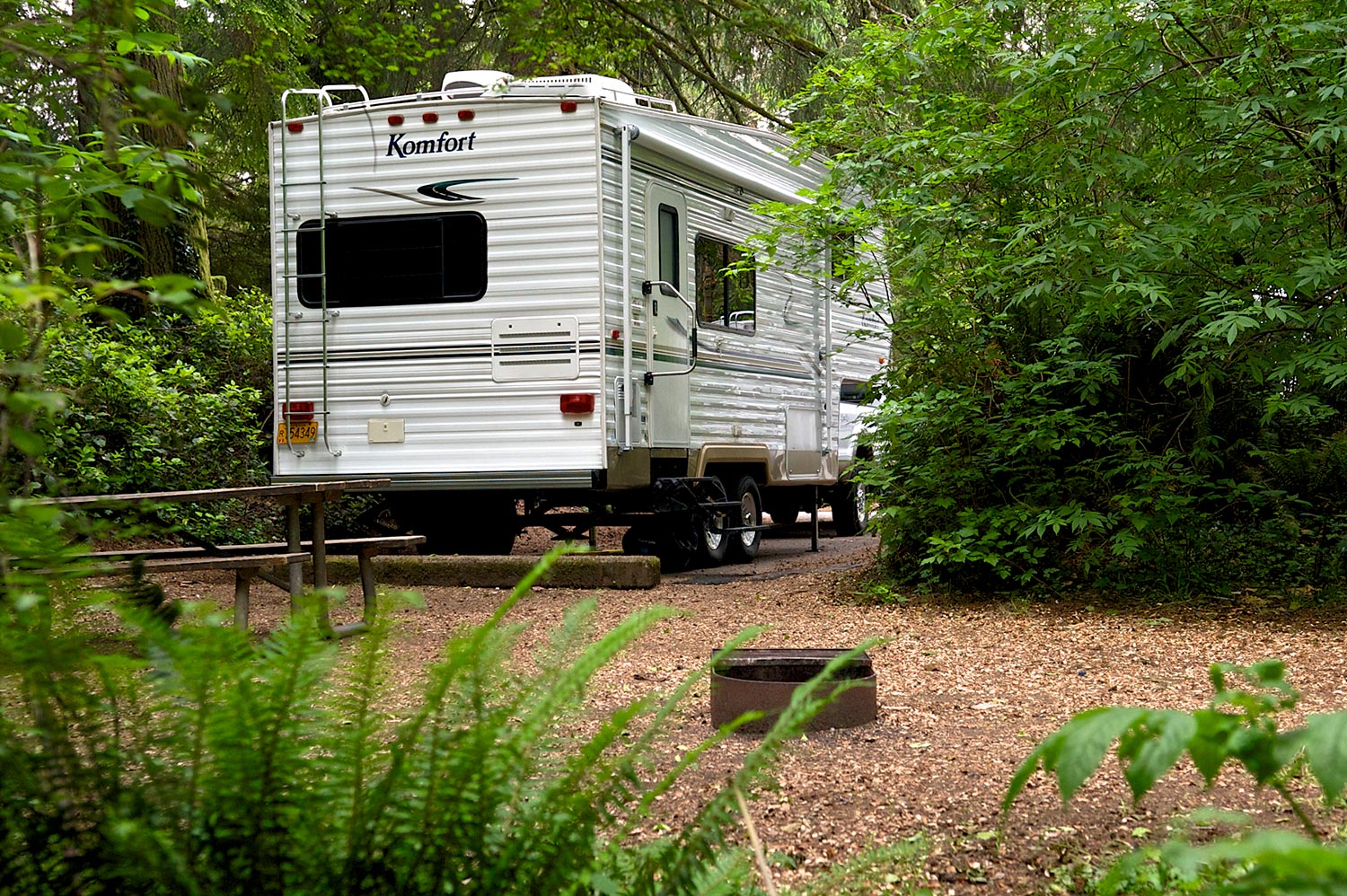
You should also employ the use of stabilizers. These will reduce sways caused by the wind. Lastly, you should properly chock the tires. This will keep them from moving and throwing off your leveling jacks and stabilizers.
How much wind would it take to flip over a camper?
Though campers and 5th wheels can certainly flip over from the wind, it will take a lot more to do so than you might think. The wind has to be powerful enough, and it will have to hit the vehicle just right for this to happen.
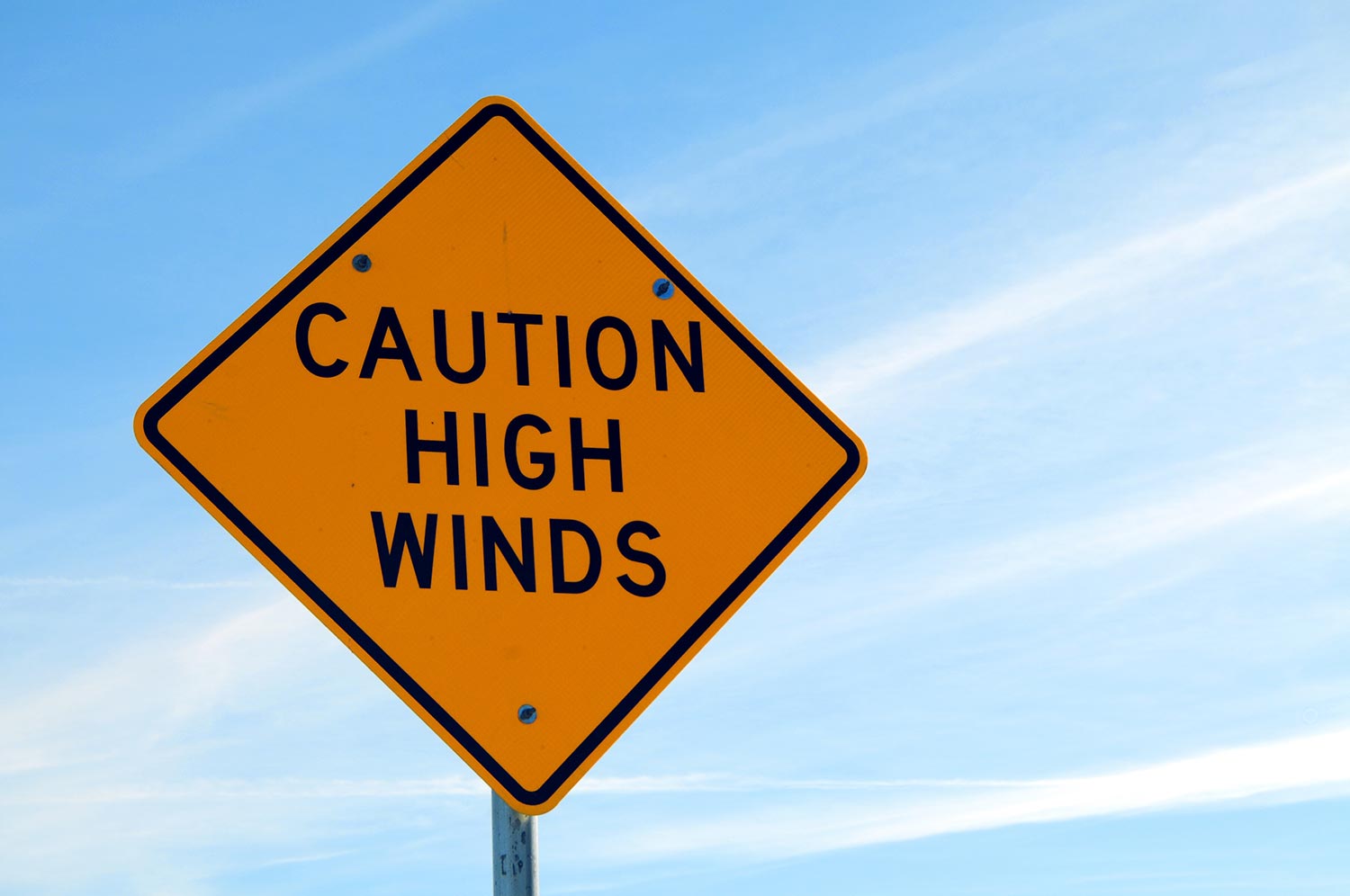
There's a fun mathematical formula that could help you determine whether or not the wind will topple your 5th wheel:
W=L x H x F
W is the wind speed, L is the length of the 5th wheel, and H is its height. F is variable, being 20 when the wind is 90 miles per hour, 29.8 at 110 miles per hour, and 41.8 at 130 miles per hour.
After you make this calculation, if "W" is less than the gross trailer weight, you are unlikely to flip over. But if "W" is greater than the gross trailer weight, you might be heading toward Oz.
No matter the odds, we encourage you to take any and every precaution to protect yourself from the wind when camping or traveling with a 5th wheel.
Final thoughts
Any 5th wheel or travel trailer is susceptible to high winds, but there are precautions that you can take to minimize their impact.
This will not only protect your investment from damage but will also keep your family safer during severe weather events. If the wind is too strong, you should avoid camping in a 5th wheel altogether. Drive safe!
We hope this post on 5th wheels answered all of your questions. For additional helpful information, we suggest reading the following posts:
Do You Need A Diesel Truck To Pull A 5th Wheel [Including 5th Wheel & Pick-up Models]
RV Water Heater Isn’t Working On Electric Or Gas – What To Do?
Can You Stand Up In A Ford Transit? Would It Make A Good Camper?
